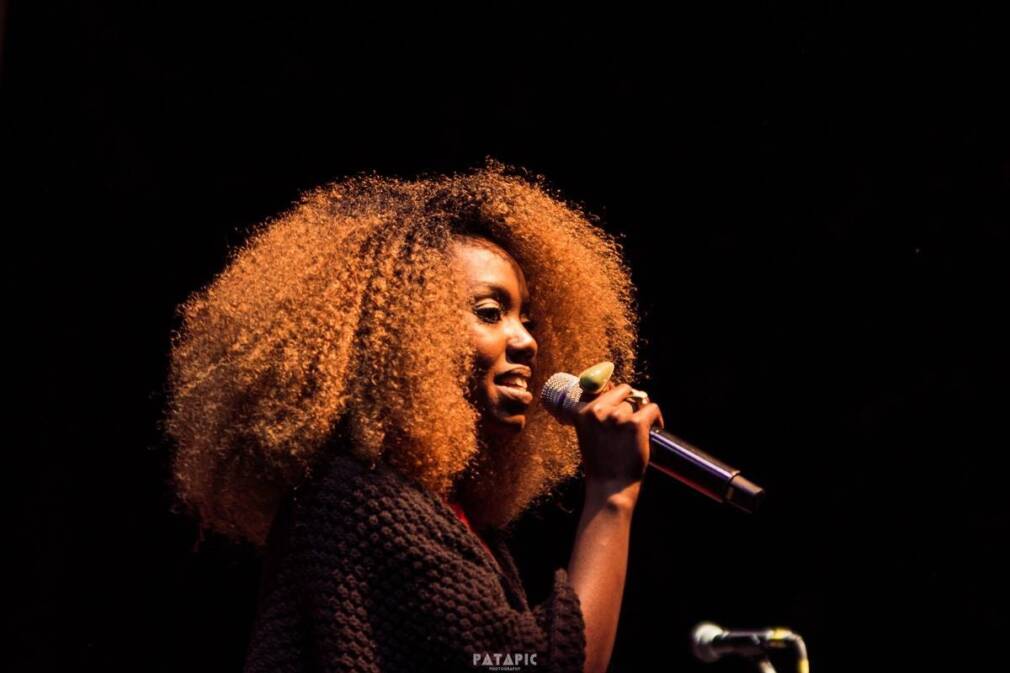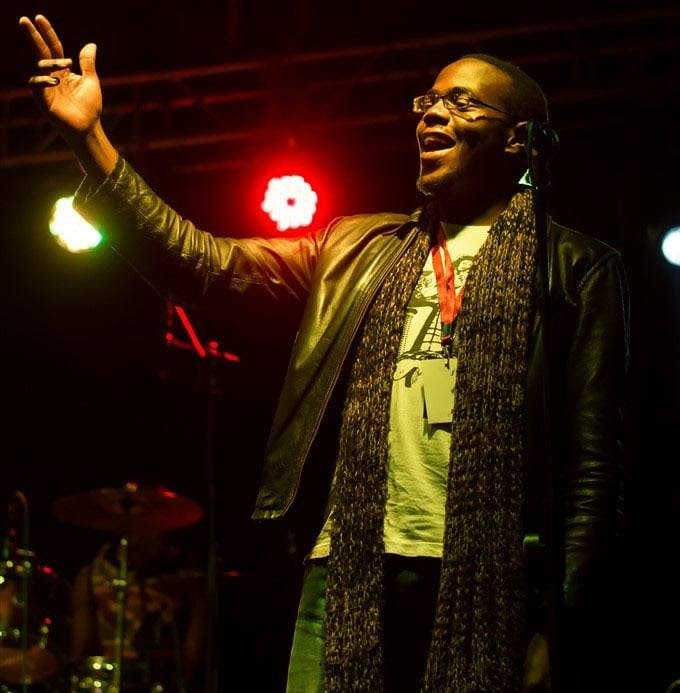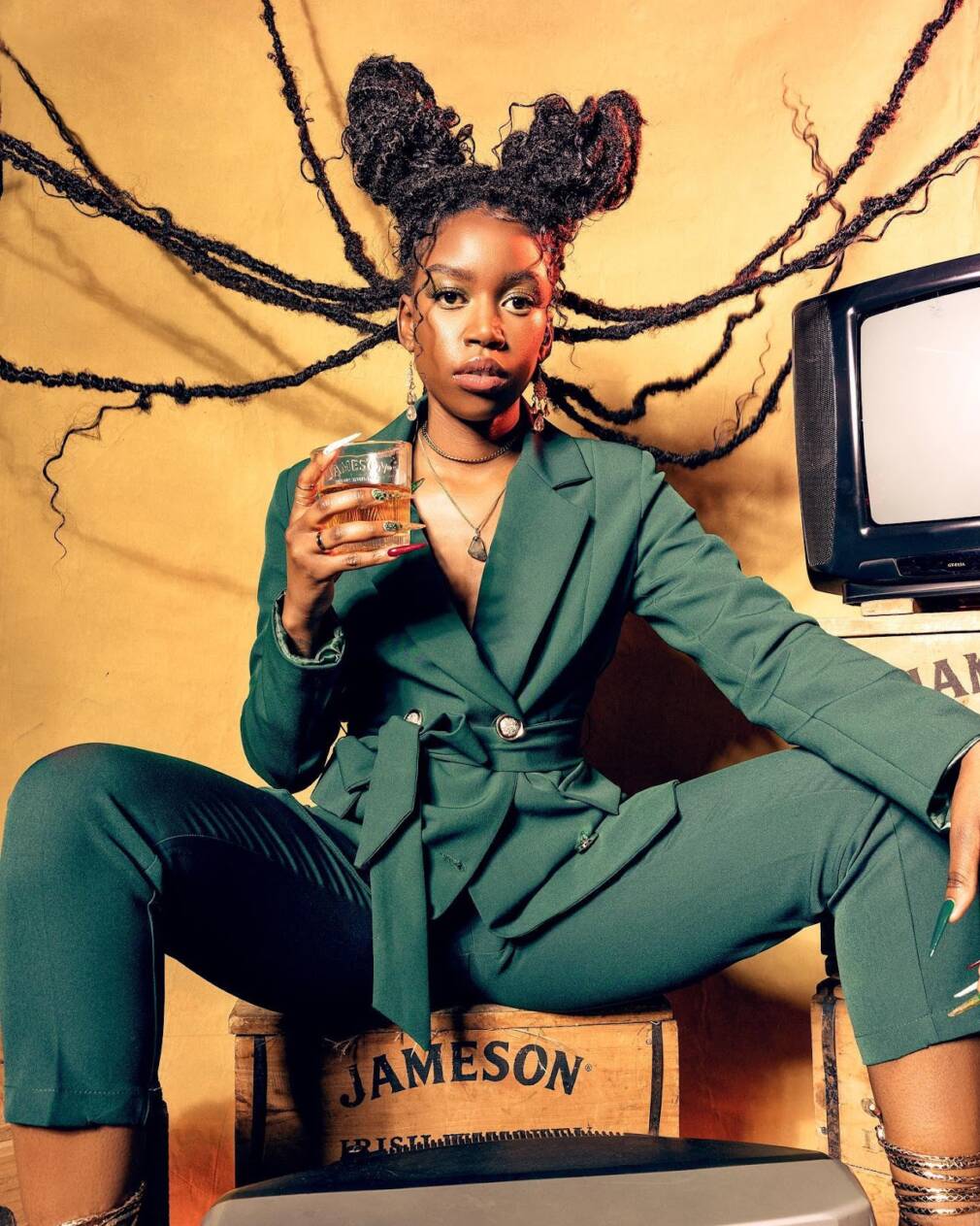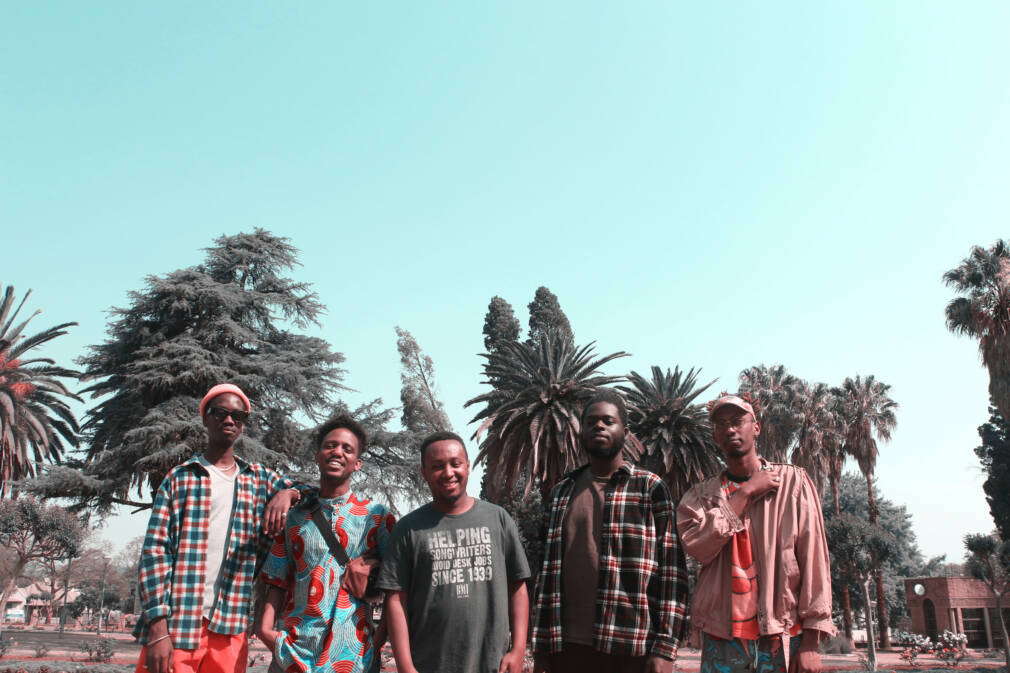In Kenya, “Alt.”, as the creators call it, is increasingly the sound and identity for gatherings of niche audiences. Experimental events & curated festivals, weekly coffee shop mini showcases, selectively curated online playlists and annual award ceremonies are just some of the chosen avenues of Kenya’s blossoming alternative scene. Live performances (now online and in person) are also a key way to build new fans as music lovers step out to interact and discover fresh new sounds.
PAM set out to explore the alternative music scene in Kenya, getting in touch with some of the fields’ leading pioneers to understand what’s happening on the ground.

An introduction from a pioneer
Tetu Shani, a key alternative musician in Kenya, who recently got nominated for the AFRIMA Awards under the African Rock category and earned himself a music placement on Netflix’s Blood and Water series, set us off by sharing his understanding of the scene, it’s history and the key players.
“Alternative music means something different depending on the context or country. I’ll share what it means to me as a Kenyan musician. Alternative music is always off-center. Say, at any given point, you have what is the mainstream – the collection of sounds that specific culture has embraced, at that moment. This is what you ubiquitously hear on the media, say radio for instance. So, Alternative musicians then, are the people who create a sound that is different from the mainstream sound in their culture at that point.
I consider myself as part of the alternative music movement in Kenya, and one of the pioneers along with other great names like Muthoni Drummer Queen, Blinky Bill, Mayonde, Just A Band and a bunch of other people.”
Muthoni Drummer Queen is a key player in the Kenyan alternative scene, especially her impact in live spaces. Right now, she’s got the performance incubator going on, which is a huge thing. There are playlist curators committed to highlighting the music. I am one of them. My Spotify playlist for Alt. Kenya has about 1,500 followers and I use it to highlight some of these artists in the alternative scene. There is Chaxy, who for a long time has been doing interviews for basically artists in the alternative music scene. We also have EA Wave, who just launched their record label, and they being an electronic music collective, that’s a really ambitious and fantastic thing to do.
In the past, we’ve had people like Patricia Kihoro, who hosted Afro Central on Homeboyz music, which was an alternative music platform for a very long time.”

A scene by many names
As long as music has existed in Kenya, there has been an alternative music scene however, it can be difficult to pinpoint historically what that timeline looks like. For example, when popular music styles like benga, seben and Afrofusion were in their heyday, there were other artists such as Ayub Ogada, making alternative music, that strayed from popular norms.
Because of these changes, or “alternatives” to what is currently popular, the scene has borne many names.
“I am currently calling my music alternative pop. I mean, throughout the years, it’s been Afrofolk, at one point I called it pop-rock, and Afropop. But I think finally I have settled on Alternative Pop. What makes it unique is, it’s basically me unfiltered.”
Tetu about his style
At one point, Kenya’s alternative music scene was known as Nu Nairobi. Under this banner, artists came together for the #AwesomeChallenge, releasing one song a month for a period to create awareness for their movement. Tetu Shani, who considers himself a leader in alternative music, was heavily involved. His song “Chemistry”, featuring Mayonde, and released during this challenge, became one of the most remixed songs in the Kenyan history.
The merging of tradition and modernity
Though there are different participants in the alternative music scene who seek a convergence between modernity and tradition; merging authentic (and vulnerable) storytelling, cultural inheritances, folk melodies and fashion with the available technological advancement to create new art.
In Kenya, the music is a fusion of existing global genres like soul, house, reggae, RnB, hip-hop, trap, country, and rock with the homegrown sounds of benga, rhumba and traditional folk. It also involves incorporation of traditional musical instruments like Orutu, Nyatiti, and Ajawa alongside classical instruments and arrangements to birth a rich unique sound.
Pioneering innovators like Makadem have invented, experimented and modified their sonic expressions along those lines from Ohangla, to fusing Nyatiti and jazz, and currently exploring Nyatititroniks. This is a trend we see among many other alternative artists.
Ayrosh blends Kikuyu music with neo soul and r&b, resulting in a beautiful folk-fusion. Bengatronics, santuri sounds and gondwana have been busy fusing traditional benga sounds into modern electronic dance music. Blinky Bill and Idd Aziz’s collaboration with UK act Seronde yielded a funky afrofuturistic sound. Not forgetting the EA Wave, a team of young creators delving on electronic frontiers.
Awicko, a new entrant into the scene debuted Afrobenga, mixing benga music, Afrofusion and elements of dancehall. This new sound can also be witnessed in the works of his contemporaries like Brizy Annechild and Okello Max, who have both released chart topping records.
Another innovative artist on the alt scene is Yaba, who fuses rhumba, benga and trap sounds to create his signature Rhumbacane.
The result is tasteful, culturally rich and modern. It is content that is fresh and ready for consumption, even by the most urban audience.
“Innovation is important because it’s what keeps the music fresh. Innovation is fresh bread. Fresh bread, to me, is the most delicious kind of bread. Innovation also can’t happen without collaborations, every time we see it in a culture, it’s usually sort of at the intersection of one or more. Innovation keeps us young, humble and learning.”
Tetu notes.
Other producers, Deejays and production units that are actively involved in developing alternative music include Jinku, Ukweli, Saint. Evo, Nu Fvnk, Cortis, DJ Mura, Kuriba, Ngalah Oreyo, Suraj, Kagwe Mungai, Mvroe, MG, Mutoriah, Waithaka, Kato Change, PRVKE, Webb Dzine and a lot more.

Giving a stage to emerging artists
The epicenter of Alternative music in Kenya has shifted and evolved with time. At one point, Creatives Garage in Kilimani served as the melting pot. Here, nerdy creators with their outlandish fashion styles, freely flourishing hair, and equally free spirit, gathered to explore sounds that would contribute to the country’s alternative scene. The hub later shifted to The Alchemist Bar, located in Westlands, which is currently the breeding ground for amazing alternative concepts and activities.
All the while, there have been major players to the scene who have contributed immensely, either through leading, creating various platforms, structures and systems to elevate alternative music. Before taking a hiatus, Just A Band played a key role in Kenya’s alternative scene. The baton has since been relayed to the Band’s point man, Blinky Bill, alongside Tetu Shani, Karun, EA Wave, Muthoni Drummer Queen and others.
Another equally important platform is Café Ngoma, which hosts alternative music artists for weekly performances. The platform embraces most new alternative artists in Nairobi, before any other stage recognizes them. It has grown to the point of including an awards ceremony, Café Ngoma Awards, which acknowledges and celebrates outstanding alternative artists around Africa.

“Café Ngoma encourages the many musicians who are great composers of jazz and other alternative sounds to keep creating and sharing their beautiful music. Much as there are notable great pop acts and successful names out there, we wouldn’t want to create another of them. Let’s explore something new, the world is looking for next. Start alternative, and stay alternative as you grow your audience and make business sense of your journey. You can be successful as an alternative musician.”
Steven Urban, the artist and founder of Café Ngoma and Café Ngoma Awards
With platforms like perFORM, Café Ngoma, Studio TISA as well as venues like Creatives Garage, The Alchemist, Kiza, Nyama Mama, Choices, and the Blues, alternative artists have various showcase options, supporting both stripped down mini showcases and full band performances.
An emerging alt. artist can start by gracing the weekly sessions at Café Ngoma, then continue to the Jamhuri Jam Sessions at Nyama Mama. As the audience grows, they can manage a 2-hour performance at Jay’s Thursday Night Live, and finally start headlining their own events at a venue like The Alchemist. There are also festivals like Blankets & Wine, Koroga Music, Kilifi New Year, Sondeka, and Kisima that host mainly alternative music.
The future looks alternative
The future is bright.
Close to four years ago, Bodo Charles, the lead vocalist of Lele Ngoma and B.C. Africa founder rightly predicted that, “the future is alternative.” Did he foresee the growing intrigue that his contemporaries had for the freedom to experiment?
Globally, many artists struggle with the fear of being boxed in a singular category, either by management, or their own fans. This limits the artist with respect to creative exploration. But the emerging creatives want to experiment and explore with various sounds. They crave a sound that represents their musical diversity, often based on the music influences they grew up on – and a new emerging contemporary identity.
One mustn’t forget Kenya’s 40 plus existing ethnic groups which mean the country is rich in sonic inspirations, while the continued internet penetration enables the musicians to connect with fans across the globe.
“Alternative is all about finding your uniqueness, whether it’s connecting your roots with new funk, or going the road less travelled.” Steven Urban reminds us.
“We’re just discovering ourselves and figuring out how to express ourselves in a way that makes sense to us.” Blinky Bill mentioned a while back, and his words ring truer now than ever.
While not all Kenyan alternative musicians may end up achieving mainstream success, the scene is still providing them with a platform to showcase their unique sounds to a niche audience, eager to discover new content. When Kenyan listeners look to find something new and fresh, the alt community will be ready to serve.
One mustn’t forget Kenya’s 40 plus existing ethnic groups which mean the country is rich in sonic inspirations, while the continued internet penetration enables the musicians to connect with fans across the globe.
“We’re just discovering ourselves and figuring out how to express ourselves in a way that makes sense to us.” Blinky Bill mentioned a while back, and his words ring truer now than ever.





